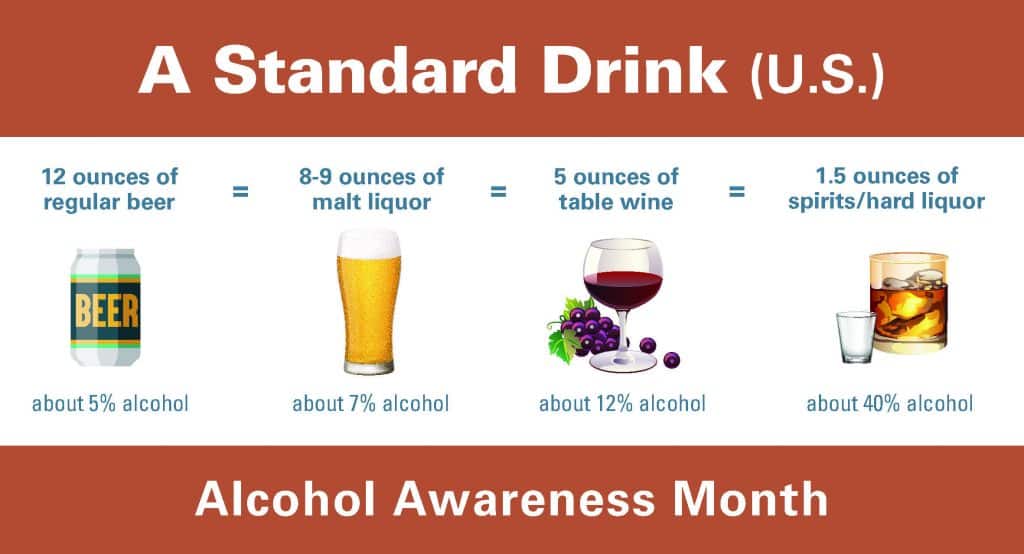To help people reflect on their drinking habits, Carman H. Whiting, MD, family medicine physician with UT Physicians and assistant professor with McGovern Medical School at UTHealth Houston, offers some education on the health effects of alcohol.
For Alcohol Awareness Month, learn what everyone needs to know about drinking alcohol — the good, the bad, and the ugly.
The good
As long as you are not pregnant or under 21 years old, alcohol is not necessarily a “bad” beverage when it is consumed in moderation.
“I think it’s fine for someone to have a glass of wine with dinner or a beer with pizza,” Whiting said. “Even though I wouldn’t prescribe drinking alcohol to my patients, there are some health benefits from moderate consumption.”
Studies show moderate drinking may reduce heart attack, stroke, or hardened arteries because small quantities of alcohol can help raise good cholesterol.
“Drinking alcohol can offer some health benefits if taken in small amounts,” she said. “Too much alcohol, on the other hand, will reverse any health benefits.”
The bad
Liver disease has long been linked to excessive alcohol intake because it builds unhealthy fat in the liver cells. Additionally, drinking too much alcohol can lead to other chronic health conditions.
“Heavy drinking or frequent binge drinking can raise blood pressure that leads to heart disease and stroke. The drinking pattern also promotes certain cancers because the ethanol in alcohol damages the DNA that repairs our cells,” said Whiting, medical director of UT Physicians Multispecialty – Sienna.
It is also possible to overdose on alcohol or alcohol mixed with drugs.
“You can get alcohol toxicity if you drink too much at one time, and this may lead to death. For this reason, binge drinking is dangerous,” she said. “If you’re taking prescription medications, you need to be very careful because certain medications interact with alcohol, potentially increasing your risk for alcohol toxicity.”
The ugly
Alcohol is well known to impair motor skills and judgment, and it only takes one instance of intoxication to create an unwelcome or dangerous situation.
“If you drink and drive just once, you’re endangering yourself and anyone who innocently crosses your path,” Whiting said. “The consequences from a possible accident can end your life or result in punitive consequences that may significantly impact your life.”
Someone who is inebriated may also express more anger or aggression toward other people, particularly family members.
“If you consume too much alcohol, it may be harmful to your family and social life as those closest to you often suffer from the consequences of your inebriation,” she said. “Alcohol, when abused, can affect others’ health and well-being, not just your own.”
What is a serving of alcohol? How much can I drink?
“People may be drinking more alcohol than they should because most don’t know what an actual serving is. Therefore, it is important to be aware of what is considered safe alcohol intake and what constitutes a serving of alcohol,” Whiting said.
A single serving of alcohol, or a standard drink, in the United States is: 12 ounces of beer, 8-9 ounces of malt liquor, 5 ounces of wine, or 1.5 ounces of spirits/hard liquor. Simply explained, a 12-ounce can or bottle of beer is equivalent to a 1.5-ounce shot glass of spirits because the actual alcohol volume is the same.
During an occurrence, do not drink more than three servings of alcohol, the doctor advises. Also, do not engage in more than one occurrence (e.g., happy hour) within 24 hours.
Women also need to limit their consumption to seven drinks a week. For men, the limit is 14.
“The difference between men and women is pretty significant because women metabolize alcohol differently,” Whiting said.

Where to get help
For anyone who may have a problem with alcohol, Whiting recommends seeing a doctor.
“A good place to start is with your primary care physician. There are appropriate medications to help patients with this problem, and we may be able to prescribe them. We can also refer the patient to an addiction medicine specialist, treatment centers, and local support groups,” Whiting said. “We can also help monitor a patient’s progress and health. We’re not going to judge; we’re going to help.”
For immediate assistance in the Houston area, call the Alcoholics Anonymous hotline at 713-686-6300.



